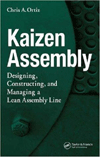Editorial: Cost Cutting Won't Cut It
Innovation never goes out of style. But it can be nearly asphyxiated when management takes a misguided approach in responding to a stagnant economy. The arguments are legion, but most are just some variation on the theme: "We know we need to invest in research and development, but profits are down, the next quarter looks even worse, and the shareholders will revolt if we commit funds to R&D."
Stagnation is nothing new in technological innovation, of course. Remember Philo T. Farnsworth? He filed the first of 10 patents on television in 1927, during a stock market boom. Then the nation plunged into the Great Depression, says Gary McWilliams in The Wall Street Journal, and the first public appearance of a TV set based on his patents wasn't until the 1939 World's Fair. Then WWII intervened, and TV sets and broadcasts didn't become widely available until 1946, almost 20 years after the first patents. Fast forward to the 1970s. The first personal computers were patched together as one-off units, then Steve & Steve introduced the Apple, also in an atmosphere of stifled business spending. The PC era didn't truly begin until capital spending thawed in the 1980s, and IBM stepped into the market.
Even Bell Labs, arguably the center of the pure research universe, has fallen on hard times. After eight decades at the summit of technological progress, Bell Labs' research budget has been cut to one-third of its mid-1990s level of $350 million, says Dennis K. Merman in The Wall Street Journal. Even though curtailed, innovation is alive and well. The company, having just received its 30,000th patent, continues to push hard into the core research that can make telecom and wireless networks cheaper and more flexible. And some inside the Labs say that the new focus on applied research is a necessary change.
Business innovation isn't dead either. The Outrageous Business Plan competition run by the Graduate School of Business at Columbia University may be tongue-in-cheek, but it turned into outrageous seed money for three entrants. Hockey player Aaron Foeste's pitch for a new twin-rink ice-skating rink, Cedric Fletcher's pitch for motorcyclist sportswear, and Mindy Cohen's pitch for a cooking school for hip New Yorkers each garnered a $3,000 prize. The three went on to Columbia's "real" business school contest and split a $275,000 award with two other teams.
Cutting back on capital expenditures is a mistake, says James K. Glassman, a fellow at the American Enterprise Institute. Business has entered a more competitive era of hard-won profits, so more capital investment and R&D are necessities. Historically, business success in the United States has come directly from innovation and risk-taking. The real bottom line is that cutting costs won't cut it.
Looking for a reprint of this article?
From high-res PDFs to custom plaques, order your copy today!





